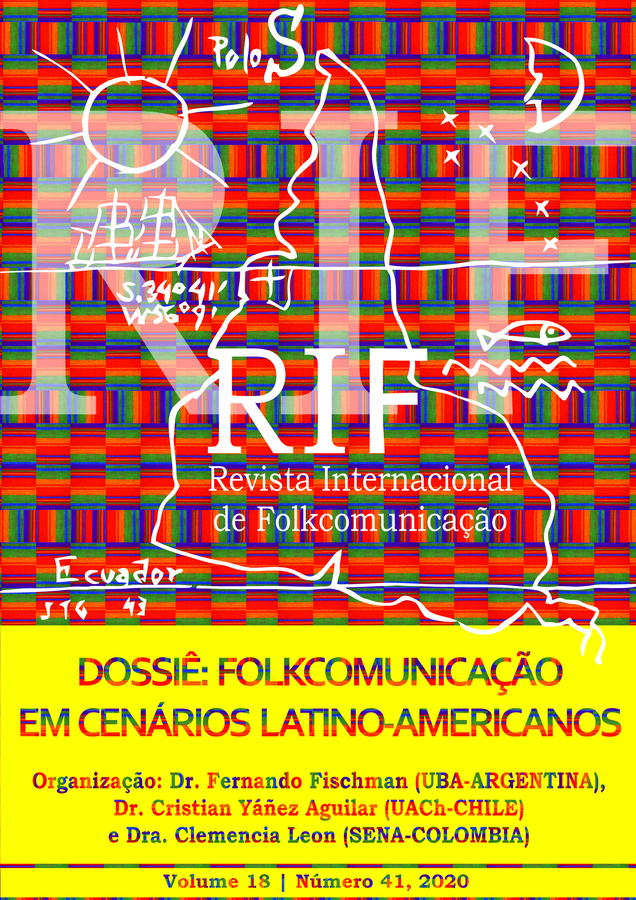The Tribal Festival: folkcommunicative perspectives in a scenario of resistance
DOI:
https://doi.org/10.5212/RIF.v.18.i41.0006Abstract
The Festival of Indigenous Tribes or Festribal is an event that has been held annually since 1995 in the city of Juruti (Pará), in the Brazilian Amazon, and comprises the competition between the “tribes” Munduruku and Muirapinima, competing in this manifestation of popular culture. The Amazon simultaneously synthesizes the uniqueness and complexity of a territory that in a very old time had an abundant scenario, inhabited by several human groups (tribes), in addition to, in modern times, adding brand and product. From the 16th century onwards, with the colonization and the arrival of the European, there was a tension between cultures that resulted in double consciousness, the effect of the widespread violence that was transmuted, being evident in popular festivals. With a focus on the cultural diversity of the region and the commercialization of its products, advertising created the “brand” Amazônia, at parties, music, dance, regional craftsmanship etc., and, based on the origin and projection of the party, this article sought to identify in the lyrics of the songs of the Festa dos tribos, in 2019, ways of resistance represented in this manifestation of popular culture and the way in which this feeling is expressed. From a qualitative approach and exploratory objective, a semiotic analysis of the event was carried out, through the audiovisual on the YouTube Platform - by the perception and apprehension of the feelings of these peoples. Although re-signified, the indigenous festivals have perpetuated based on orality, storytelling of their peoples, myths, beliefs and festivals experienced by their ancestors. This analysis finds shelter in the theory of folk communication. Festival of the Tribes; Double consciousness; Resistance; Folkcommunication.
Downloads
Downloads
Additional Files
Published
How to Cite
Issue
Section
License

Este obra está licenciado com uma Licença Creative Commons Atribuição 4.0 Internacional.
Os autores são responsáveis, em qualquer que seja o formato do texto, pelas opiniões expressas ou indiretas presentes em seus respectivos trabalhos, não endossáveis pelo Conselho Editorial e pelos editores da Revista, bem como pela autenticidade do trabalho. Ao publicar trabalhos na Revista Internacional de Folkcomunicação, os autores cedem automaticamente os direitos autorais à publicação para veiculação das produções acadêmicas, sem ônus para a Revista. Os autores detêm os direitos autorais do texto para o caso de publicações posteriores e concedem à Revista Internacional de Folkcomunicação o direito de primeira publicação, com o trabalho simultaneamente licenciado sob a Creative Commons Attribution License, que permite o compartilhamento do trabalho com reconhecimento da autoria e publicação inicial nesta Revista. Por serem publicados em revista de acesso livre, os artigos são de uso gratuito, com atribuições próprias, em atividades educacionais e não-comerciais, sendo permitida a publicação simultânea em repositórios institucionais.































